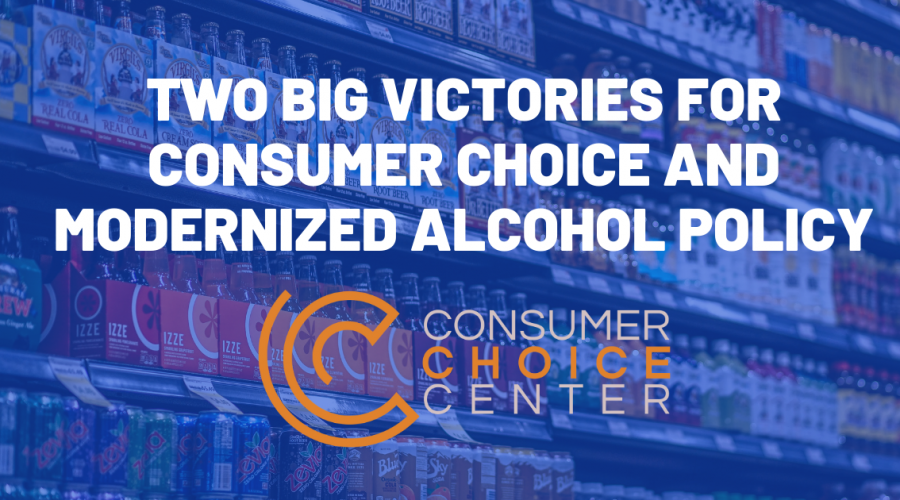A Recipe for A Better World; Nine Parts Innovation, One Part Regulation
“To protect the environment, our health, and promote the social good we have to live more austere lives.”
How often have we heard something along these lines? The problem is, it’s not a very effective approach.
Tackling the world’s most intractable problems, preserving freedoms and making life better for everyone requires something often overlooked by many who are sincerely interested in making the world better. If advocates for austere living promote bleeding heart liberalism, I believe we should stand for bleeding heart market advocacy.
For a better world, we need more innovation.
True, the world would be better off if there were more generosity and kindness. But technological innovation, usually backed by private investment, is the most important ingredient for a healthier and yes—more enjoyable—planet.
Meatless Choice
I enjoy eating meat. Although I am sympathetic to concerns about the impacts from eating meat, some more valid than others, I’m not willing to become a vegetarian. Some have gone so far as to propose a sin tax on meat to fight climate change. Whether it is animal welfare, the environment, or my own health, a reduction in my consumption of meat would only please other people. And they are out of luck. At least until now.
Patrick Brown, a biochemistry professor at Stanford saw industrial animal agriculture as the top environmental threat. “I started doing the typical misguided academic approach to the problem,” he said in a Pacific Standard Interview in 2016. The magazine reported that “he organized an A-list 2010 National Research Council workshop in Washington called “The Role of Animal Agriculture in a Sustainable 21st Century Global Food System,’ which caused not a ripple. Not long after, he determined that the only real way to impact meat production would be to beat it in the free market.”
Brown, now sounding like a mission-driven innovator, rather than a government funded activist, said “All you have to do is make a product that the current consumers … prefer to what they’re getting now. ” He added that “It’s easier to change people’s behavior than to change their minds.”
With seed funding from Bill Gates, Google, and other innovation-oriented investors, Impossible Foods has deployed scientists to develop plant-based meat alternatives meant to appeal not to vegetarians, but to meat-lovers like me. Unlike vege-burgers, which appeal primary to vegetarians, the goal of this new class of alternatives to burgers are meant to appeal to meat eaters. That’s why they‘ve been rolling it out it as a “plant-based meat” in fast food restaurants known for beef burgers.
The innovation has been the target of displeasure from cattle-ranchers, opposition from environmental activists, and, this is hard to believe, outrage from PETA. Leftist food elitists are also furious. Adrionna Fike of the Mandela Grocery Cooperative criticized the company for trying to switch burger lovers at Burger King because “They exploit so many workers Think about all the migrant workers.”
Yet the Impossible Burger and other disruptors like Beyond Meat are taking root in the U.S. market. The Food and Drug Administration recently backed the safety of Impossible Foods’ plant-sourced Leghemoglobin. The protein contains heme, also present in real meat, and is partly responsible for the taste, texture and appearance of bloody-good meat.
The burger even cleared another major regulatory hurdle in May, when it was certified kosher by the Orthodox Union.
Consumers clearly have an appetite for meaty tasting alternatives to livestock products; The company is facing supply shortages as it ramps up production of Version 2.0, sold at fast food outlets including Burger King, even before it becomes available in the meat department at supermarkets later this year. Food behemoth Nestle just joined the feeding frenzy, announcingthe launch of their own plant-based burger in the fall.
While I may not become a vegetarian, the Impossible Burger and its technological offspring increase the likelihood that I’ll reduce my meat consumption, should I so choose. That’s good news for those who think the world will be better off if I ate less meat. This outcome won’t restrict my freedom, rather it gives me – and many like me – more choices. It is important to note that it came about as the result of private-sector innovation, timely government clearance, and no costly, finger-wagging “public education” campaigns.
Tobacco Harm Reduction
Cigarette smoking remains a top killer around the world. Even in countries with the strictest anti-smoking taxes and regulations, smoking is still a scourge. It turns out that regulations and taxes do little to help addicted smokers quit, yet many in the tobacco control community continue to oppose tobacco harm reducing technologies, instead calling for only technology-killing regulation, as if that were the only tool in their toolbox.
In fact, innovative products like e-cigarettes and heated tobacco can—and do—help smokers quit smoking, even though they are not without risk. As the U.S. FDA explains it, “nicotine – while highly addictive – is delivered through products that represent a continuum of risk and is most harmful when delivered through smoke particles in combustible cigarettes.”
Yet innovative companies like Juul, who create alternatives to cigarettes, are seen by many in public health as public enemy number one. But it really shouldn’t be so complicated or divisive.
E-cigarettes are not entirely safe and they should not be used by kids. The FDA and local governments should use the regulatory and enforcement power and budgets they already have to prevent kids from obtaining e-cigarettes. Schools and parents should use their moral authority to prevent kids from using them. And regulators should foster an environment which encourages innovation to develop a range of enjoyable and less harmful alternatives for adults who wish to use nicotine.
To its credit, the FDA recently authorized the sale of IQOS, a heated tobacco product, finding that the product is “appropriate for the protection of the public health because, among several key considerations, the products produce fewer or lower levels of some toxins than combustible cigarettes.”
Even a leading skeptic of the benefits of e-cigarettes for smoking cessation recently found it necessary to make a major course correction. In a caveat-rich policy statement, the American Cancer Society acknowledged that “switching to the exclusive use of e-cigarettes is preferable to continuing to smoke combustible products.” ACS’s Clinical Recommendations state that the organization supports “any smoker who is considering quitting, no matter what approach they use.”
ACS now recommends “that clinicians support all attempts to quit the use of combustible tobacco and work with smokers to eventually stop using any tobacco product, including e-cigarettes.” Finally, and rather reasonably, the ACS advises that “these individuals should be encouraged to switch to the least harmful form of tobacco product possible; switching to the exclusive use of e-cigarettes is preferable to continuing smoking combustible products.” Unfortunately, the science hasn’t gotten down to ACS’s lobbyists, who continue to call for a ban on the e-cigarette flavors adult smokers use to quit.
In the UK, government health officials estimate that e-cigarettes could already be helping at least 20,000 smokers quit annually, and that’s a conservative estimate, they say.
Professor John Newton, director for health improvement at Public Health England said the government’s review “reinforces the finding that vaping is a fraction of the risk of smoking, at least 95 percent less harmful, and of negligible risk to bystanders.” To those who continue to sow doubt about the difference in risk between cigarettes and e-cigarettes, Professor Newton noted that “it would be tragic if thousands of smokers who could quit with the help of an e-cigarette are being put off due to false fears about their safety.”
Who are these modern day merchants of doubt?
Big pharma, which makes FDA approved (but largely ineffective) nicotine replacement therapies and smoking cessation drugs has a lot to lose. Companies such as Pfizer and GlaxoSmithKline are major backers of highly-regarded but old-school tobacco control groups including the American Lung Association, the American Heart Association and the American Cancer Society, which regularly lobby to treat e-cigarettes just like cigarettes.
Tobacco companies who don’t successfully innovate, also have a lot to lose if the cigarette goes the way of the rotary phone. No wonder some back costly regulatory schemes which serve as a barrier to entry to pesky competitors.
Innovation-Oriented Problem Solving
Disruptive innovation is not only technologically difficult, but as Impossible Foods is learning, bringing game-changing products to market requires overcoming obstacles from entrenched interests. Those interests frequently masquerade as being in the public interest, but are often anything but.
I recommend we shift our perspective. If we want to solve problems while protecting our enviable lifestyle we should embrace the idea that imaginative solutions, rather than reliance on ever-more restrictive regulations, are our best hope. Appropriately narrow regulation protects safety while also fostering innovation.
Sometimes well-intentioned, restrictive government interventions are backward-looking problem-solving tools. Too often, they fail to deliver on the promises made to justify their costs, both in terms of unintended consequences and their cost to individual freedoms. Technological advances, however, are solution-oriented and can make real strides against problems that seem otherwise impossible to overcome. And in today’s polarized environment, that’s no nothing-burger.
* * *
Jeff Stier is a Senior Fellow at the Consumer Choice Center and a member of the Federalist Society’s Regulatory Transparency Project FDA Working Group.









